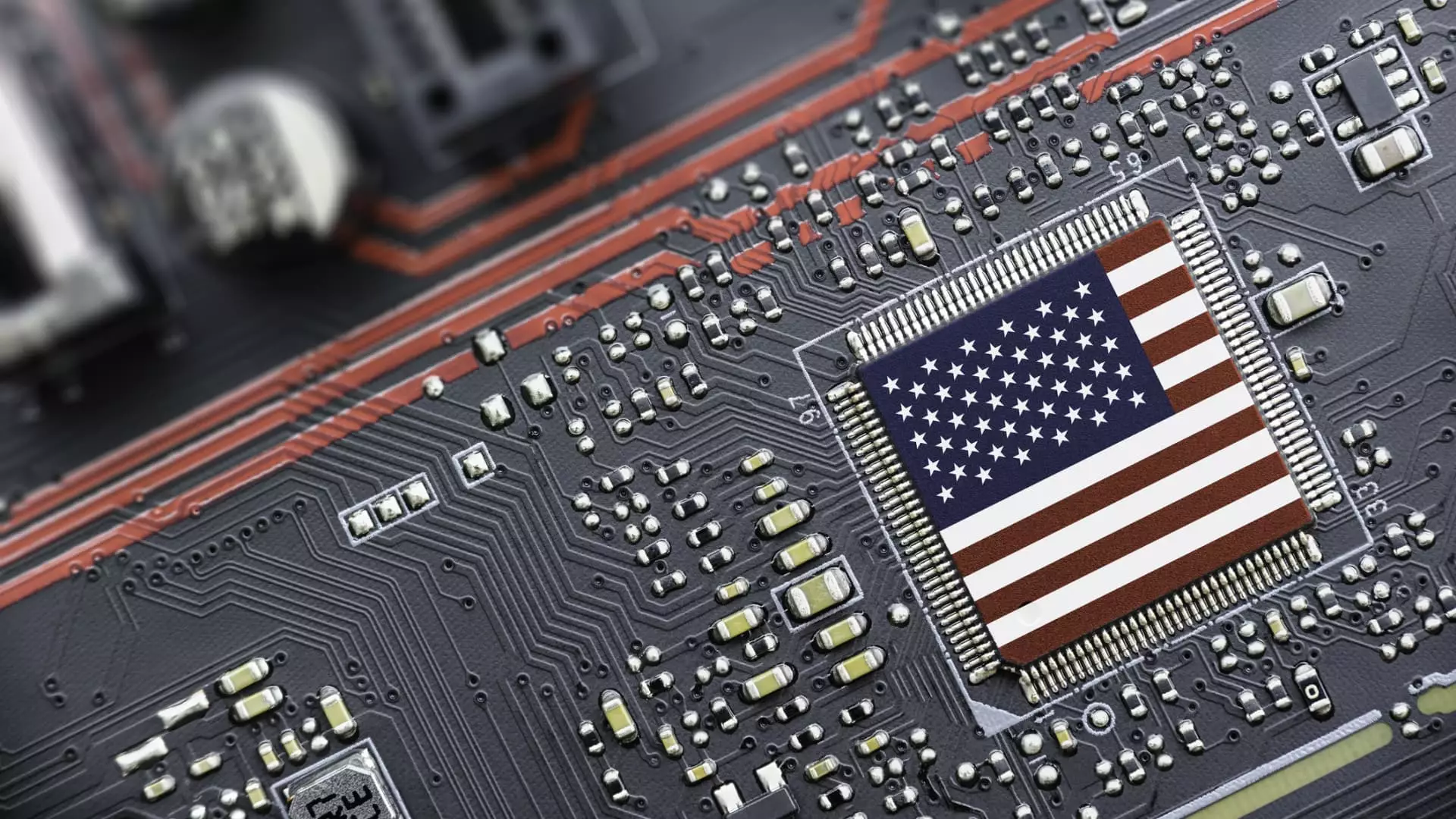The landscape of global trade is shifting, and at the forefront of this transformation is the United States’ decisive stance on semiconductor imports. The U.S. Commerce Department has begun a sweeping national security investigation into these imports, underlining the critical nature of semiconductor technology for modern electronics. This inquiry, detailed in a Federal Register notice, has far-reaching implications for both national security and the broader economy. It reflects the U.S. government’s intent to bolster domestic semiconductor production, thereby reducing reliance on foreign suppliers.
This move comes amid increasing tension around trade policies under former President Donald Trump, who has advocated for “reciprocal tariffs” in what can only be described as a complex and contentious approach to international trade. Despite public declarations that certain electronics would see exemptions, the stark reality is that semiconductors remain firmly in the crosshairs of upcoming tariff reforms. This contradictory stance raises questions about the actual direction of trade policy and the uncertainty that businesses must navigate.
National Security at the Core
The rationale behind the investigation is deeply intertwined with national security interests. Semiconductors are the lifeblood of virtually every electronic device we use, from smartphones to military technologies. As the global race for technological superiority intensifies, the U.S. government has identified vulnerabilities associated with dependence on foreign semiconductor sources—particularly from countries like Taiwan and South Korea. By launching this investigation, officials aim to ascertain whether increasing domestic production capabilities is feasible and to explore the necessity of trade measures, including tariffs, to safeguard national interests.
The invocation of the Trade Expansion Act of 1962, especially Section 232, provides the government with a legal framework to impose tariffs on imports that threaten national security. This precedent not only reflects the urgency of the situation but also illustrates how historical legislative measures are increasingly being leveraged to tackle contemporary challenges. The echoes of this investigation can be felt beyond semiconductors, as it parallels similar inquiries into pharmaceuticals, suggesting a broader strategy to fortify national capabilities across critical sectors.
Economic Ramifications and Industry Impact
The implications of this probe extend well beyond the typical regulatory framework. The semiconductor industry is integral to the U.S. economy, underpinning innovation, manufacturing, and job creation. The inquiry raises critical questions regarding industrial policy, especially since the U.S. is relatively late in aggressively pursuing manufacturing within its own borders. Initiatives like the $280 billion CHIPS and Science Act are steps in the right direction, yet the effectiveness of these measures in building sustainable domestic production capabilities remains to be seen.
Moreover, the potential for tariffs on imported semiconductor technology can ignite a considerable upheaval in pricing structures, potentially cascading into higher prices for consumers and businesses alike. Economic signals indicate volatility as companies brace for new tariff regimes, potentially altering supply chain strategies that have been finely tuned over years. Companies like Nvidia are taking proactive measures by investing in local factories, a necessary but not straightforward path that highlights the urgent need for a robust and resilient semiconductor ecosystem in the U.S.
Future Prospects and Strategic Directions
Looking ahead, the U.S. faces a pivotal moment in its approach to semiconductors and technology policy more broadly. The ongoing investigation is an opportunity for policymakers to recalibrate national strategies that address both security and economic resilience. President Trump’s anticipated tariff announcements add another layer of challenge, as they could trigger retaliatory measures from trading partners, further complicating international relations.
As the semiconductor supply chain undergoes transformation, collaboration among industry players and government actors will be crucial. Companies like Taiwan Semiconductor Manufacturing (TSMC) are already expressing intentions to further invest in U.S. manufacturing, signaling a tantalizing potential for partnerships that can bridge the gap between domestic aspirations and international realities.
In the broader context, the unfolding semiconductor narrative will shape not only the future of U.S. manufacturing but also redefine relationships in the global marketplace. Adaptation and foresight will be key as the U.S. navigates its next steps in a rapidly evolving tech landscape. The implications of the semiconductor investigation are thus not merely about tariffs and imports; they encapsulate a fundamental shift towards sovereignty in technology and economic independence in an increasingly uncertain world.

